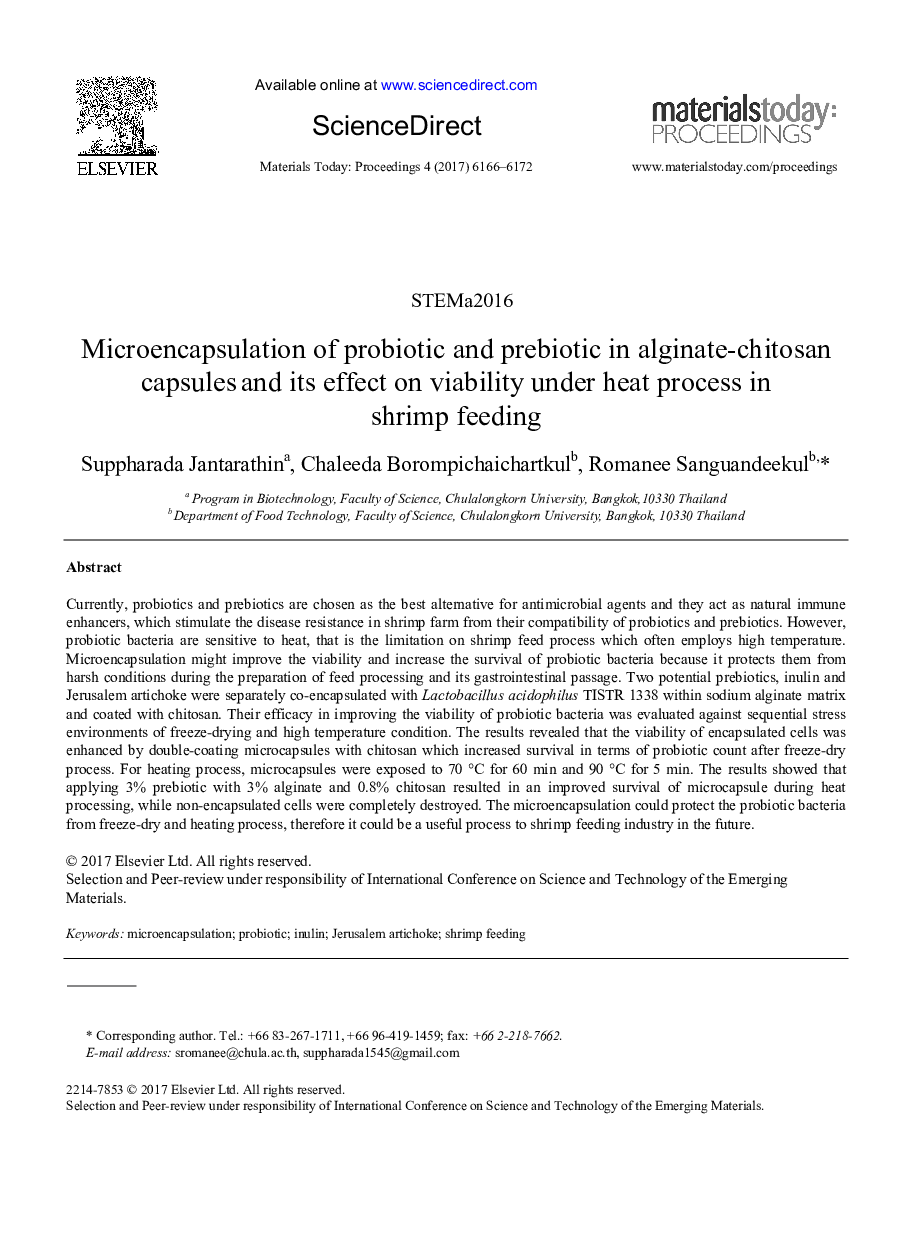| Article ID | Journal | Published Year | Pages | File Type |
|---|---|---|---|---|
| 5461783 | Materials Today: Proceedings | 2017 | 7 Pages |
Abstract
Currently, probiotics and prebiotics are chosen as the best alternative for antimicrobial agents and they act as natural immune enhancers, which stimulate the disease resistance in shrimp farm from their compatibility of probiotics and prebiotics. However, probiotic bacteria are sensitive to heat, that is the limitation on shrimp feed process which often employs high temperature. Microencapsulation might improve the viability and increase the survival of probiotic bacteria because it protects them from harsh conditions during the preparation of feed processing and its gastrointestinal passage. Two potential prebiotics, inulin and Jerusalem artichoke were separately co-encapsulated with Lactobacillus acidophilus TISTR 1338 within sodium alginate matrix and coated with chitosan. Their efficacy in improving the viability of probiotic bacteria was evaluated against sequential stress environments of freeze-drying and high temperature condition. The results revealed that the viability of encapsulated cells was enhanced by double-coating microcapsules with chitosan which increased survival in terms of probiotic count after freeze-dry process. For heating process, microcapsules were exposed to 70 °C for 60 min and 90 °C for 5 min. The results showed that applying 3% prebiotic with 3% alginate and 0.8% chitosan resulted in an improved survival of microcapsule during heat processing, while non-encapsulated cells were completely destroyed. The microencapsulation could protect the probiotic bacteria from freeze-dry and heating process, therefore it could be a useful process to shrimp feeding industry in the future.
Related Topics
Physical Sciences and Engineering
Materials Science
Metals and Alloys
Authors
Suppharada Jantarathin, Chaleeda Borompichaichartkul, Romanee Sanguandeekul,
